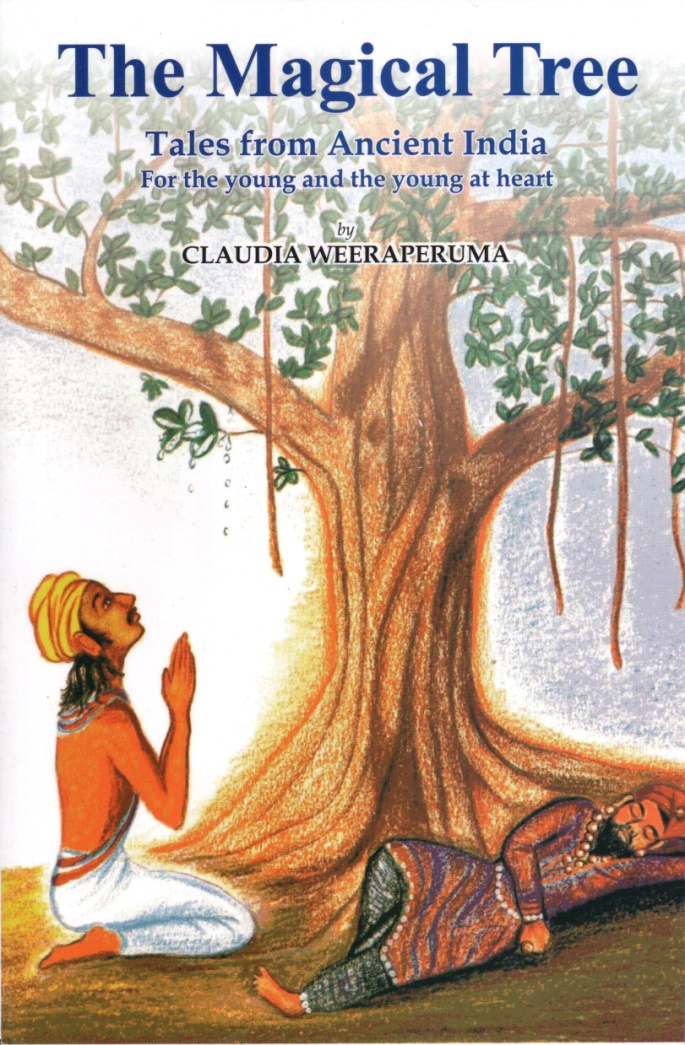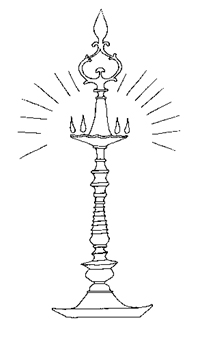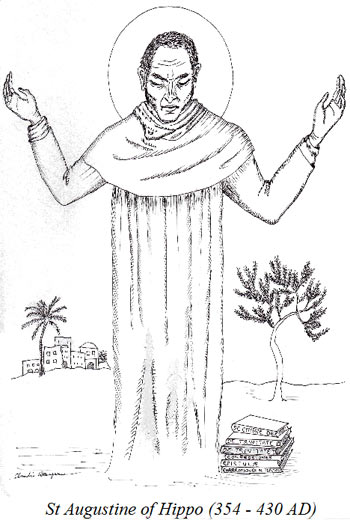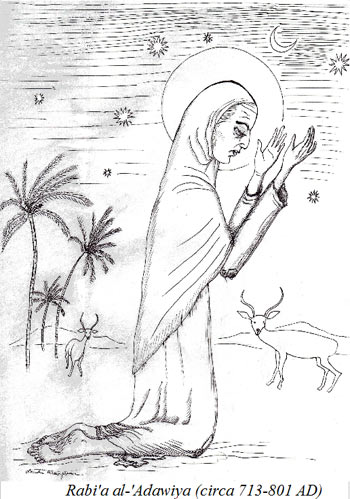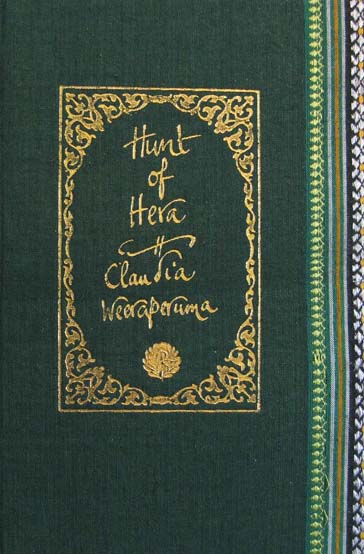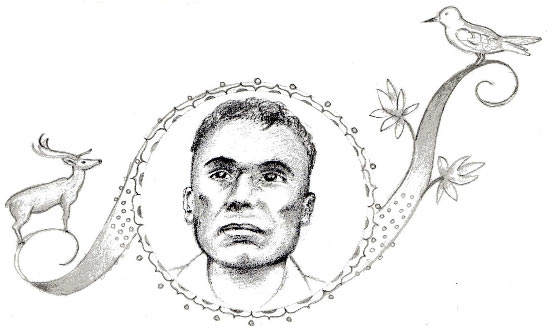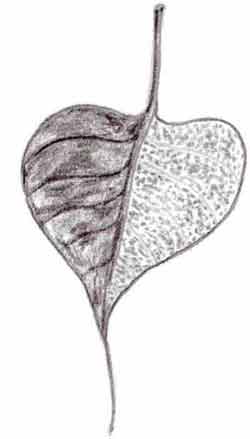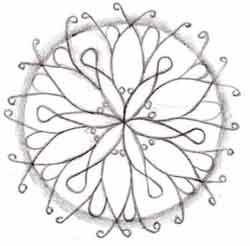 |
Claudia
Weeraperuma
|
 |
Claudia Weeraperuma was born in Berne (Switzerland) in 1961. She married the philosopher Susunaga Weeraperuma. She not only translated into German his book J.Krishnamurti as I Knew Him but also illustrated several of her husband’s works such as Mysterious Stories of Sri Lanka, The Pure in Heart, The Homeless Life, Nirvana the Highest Happiness and Serenity Here and Now. As a matter of fact, all the illustrations in this web site are the creations of Claudia who owns their copyright. Claudia is more a creative artist-cum-writer than an academic.
At university she studied English, German and Sanskrit. Her doctoral thesis was Contemplative Prayer in Christianity and Islam. Today she is spiritually sustained by the teachings of the Buddha, pure land Budhism and Zen.
|
|
|
Publications:
The Magical Tree
: Tales from Ancient India Bamboo Grove : Buddhist poems Contemplative Prayer in Christianity and Islam Hunt of Hera : a novella Ocean of Compassion : poems
|
|
click on the flowers to go up to the menu
|
 |
Marrakech :
M. Al Aafaq |
Lord Buddha
|
|
|
|
|
|
Day of Illumination
|
|
|
|
|
|
Quietude |
|
click on the flowers to go up to the menu
|
|
|
Contemplative Prayer in Christianity and Islam (St Augustine, St Teresa of Avila and Rabi'a al-'Adawiya) |
Excerpts from Contemplative Prayer in Christianity and Islam
|
“Contemplative Prayer is a communication with God and a simultaneous divinely inspired movement of the heart or soul towards Him that is accompanied by the loving awareness of His Presence.”
“The prerequisites for Rabi'a's and St Teresa's Contemplative Prayers converge at many points, especially concerning the virtues of humility, gratitude, contentment, chastity, love for God, poverty of spirit and detachment from the world.”
“Christian prayer not only leads to some future happiness, either in this life or in the hereafter, but it also can, in its more purified and disinterested form, namely in Contemplative Prayer, be its own reward.”
“It is not enough for a Christian merely to do good works and to be charitable. For it is necessary to reach a plane in which all actions are inspired by loving and serving God. This devotional quality can be reached through Contemplative Prayer.”
“In both Christianity and Islam the greatest virtue is the pursuit of God. The intense wish to see His face must supersede all other desires. Only true devotees who undeviatingly love God are worthy of emulation.”
“When she maintained that knowledge of God precedes contemplation, Rabi'a more or less implied what St Augustine had already stated. Both saints acquired this knowledge of God after having had a transcendental experience of Him.”
“Rabi'a al-'Adawiya, also called Rabi'a of Basra, was so humble that she remained secretive about her devotional feelings: she did not try to publicize her bond of friendship with God. This virtue of humility is not basically different from the teachings of St Teresa of Avila who taught that nuns should not openly give expression to their devotion to God.”
“Muslims believe that God understands and appreciates the body language of the worshipper. Body language not only expresses devotional states of mind and heart but can also create them. Some Christians like St Augustine agree that the posture of prostrating oneself can intensify one's fervour and humility during prayer. In Islam the belief exists that prostration is the best means of drawing nearer to God.”
“All the movements, postures and prayers in Salah are designed to lead to the state of absolute absorption in God, provided Salah is recited at a slow pace.”
“According to Rabi'a, a contented person not only accepts suffering with equanimity but is also grateful for it. This attitude of gratefulness for suffering and injuries was also the hallmark of some Christian saints. They knew that suffering was the only way to redemption.”
“Contemplative Prayer should be offered in such a way that at every stage it becomes a movement away from one's ego. This self-effacing trait is common to the virtues of humility and poverty of spirit.”
“St Teresa deemed humility to be the most important virtue of a spiritual aspirant. Every form of pride is a hindrance to the attainment of the Prayer of Quiet.”
“Mental Prayer can be a stimulus to the mystical elevation of the soul. By practising the Presence of God and by rapturously thinking about His exalted attributes, our love for Him can become so intense that God begins to draw us to Himself. Anyone is free to meditate on God with varying degrees of intensity of feeling, but the act of divine contemplation (consciousness of God's Presence) cannot be self-induced. Given the predetermination of all events by the Omnipotent One, it is the Lord alone who decides if, and when, a person is going to be drawn to Him.”
“Mental Prayer has a purificatory effect on the mind and emotions in so far as our shortcomings, weaknesses and moral lapses begin to surface, thereby enabling us to rectify ourselves. This is the beginning of self-knowledge and humility. It is, in fact, the commencement of spiritual evolution through prayer.”
“The Islamic practice of repeating Allah's great qualities could result in self-discovery and self-improvement. By knowing the remarkable attributes of the Lord a devout Muslim becomes painfully conscious of the fact that he is lacking in these very same virtues.”
“The Sufi concept of the heart bears much resemblance to St Teresa's consolations in the Prayer of Quiet... St Teresa compared these consolations to the flow of water. She also likened them to 'a brazier sprinkled with sweet perfumes. Although the spirit neither sees the flame nor knows where it is, yet it is penetrated by the warmth, and scented fumes, which are even sometimes perceived by the body. Understand me, the soul does not feel any real heat or scent, but something far more subtle...' This description is not dissimilar to the Sufi ideas about the heart. According to the Sufis the heart is believed to be an 'incorporeal luminous substance'. These descriptive words of the Sufis have an affinity with St Teresa's image of 'a brazier'.”
“It is interesting that the Sufis associated the heart's inner aspect, which some of them call 'the Spirit', with 'incorporeal human subtlety... the subtle vapour produced in the heart'. This concept of the heart's interior is reminiscent of St Teresa's 'scented fumes'. We can only surmise that Rabi'a's divine heart was probably the same as St Teresa's consolations.”
“There are close parallels between Rabi'a's divine heart and St Teresa's consolations: The divine heart and the consolations are given to man by God and these cannot be brought about by man... The divine heart and the consolations kindle a fervent love for God in the person who is the recipient of these divine favours... Rabi'a's divine heart and St Teresa's consolations have the advantage of furthering spiritual progress tremendously. Rabi'a insisted that the only way to God was by means of the divine heart. St Teresa declared that consolations perfect the virtues and therefore indirectly lead to God.” |
|
| “Rabi'a and St Teresa
experienced God's love for them. This experience was a great delight
for them...St Teresa felt the joy of the consolations in the Prayer of
Quiet. Rabi'a, too, was in a state of ecstasy when she was blessed with
divine love: Once Rabi'a observed that 'were the rapture of Divine Love
which I have realized ever to be bestowed upon humankind, no one would
remain unaffected by this love.'”
“The mystical states of these two saints have much in common. But there is one significant difference between St Teresa's consolations and Rabi'a's divine heart. While consolations are always happy states, the divine heart is not necessarily so, because the divine heart also knows periods of oppression and sorrow. In fact, Rabi'a is better known for her grief than for her ecstatic experiences.”
“The divine heart consists of mystical states in which the spiritual seeker can experience God's presence within himself; the divine heart includes consolations, ecstasies, constrictions and sorrows; finally, the divine heart increases the spiritual fervour and leads the seeker to the Sought.”
“For St Teresa and Rabi'a the experience of the most exalted stage of Contemplative Prayer was a kind of inward death; they lost their fear of physical death; they had out-of-body experiences as they truly advanced closer and closer to God; they desired to do God's will and live in complete harmony with it. They succeeded in their objectives. St Teresa and Rabi'a gladly accepted whatever experiences God offered them, be they trials or favours. St Teresa felt joy and peace when she was persecuted; Rabi'a found the curbing of her desires fulfilling, provided thereby she was in accord with God's will. They got a certain satisfaction from encountering difficult situations. Rabi'a seems to have welcomed suffering, just like St Teresa, when the latter had reached the Prayer of Union.”
“St Teresa as well as Rabi'a severed their worldly attachments in the course of their spiritual evolution. After St Teresa had experienced raptures... she perceived worldly things as 'nothingness'. Similarly, Rabi'a found that the world was 'nothing'. Rabi'a's spiritual attainment excluded everything other than God. Expressed differently, her entire being was replete with the Supreme. She had fully realised God as the absolute and only Reality... However, in spite of their detachment from people, Rabi'a and St Teresa had compassion for those in need of spiritual guidance.”
---Contemplative Prayer in Christianity and Islam |
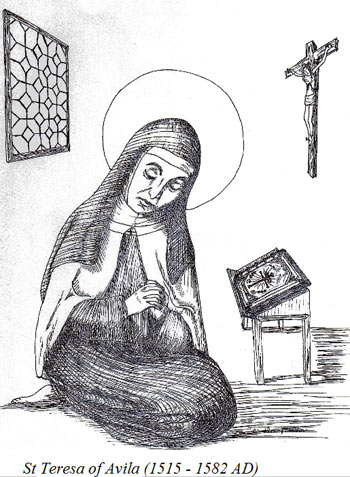 |
click on the flowers to go up to the menu
|
|
|
|
|
A special feature of this novella is the inclusion of complaints made by the spirits of slaughtered animals. The spirits speak of the terrible cruelties they have experienced. The novella is interspersed with poetic descriptions of the Provençal landscape. There are accounts of how Claudia, the main character of the novella, struggles to understand the nature and meaning of the noises she hears at night. She feels sympathy for the helpless creatures that suffer unbearably at the hands of man. The novella titled Hunt of Hera is all about the experiences of a waitress called Claudia in a restaurant in the South of France. She is the narrator of the story. One morning Claudia is surprised when she discovers the smelly carcasses of a hunted she-boar and her piglet on the carpet of the restaurant's entrance hall. Carrying away the piglet is easy enough, but the proprietors of the restaurant, namely Monsieur and Madame Vial, and the hunter who killed the animals, Monsieur Peine, they all find it impossible to lift up the heavy carcass of the she-boar from the valuable carpet. Incidentally, Madame Vial is very upset as she treasures the carpet, which the Vials had recently brought from Morocco. Not succeeding in removing the blood stains on the carpet, she decides to leave the carcass on the carpet. The she-boar, along with the carpet, is then dragged to their garage where Monsieur Peine, the hunter, begins the task of cleaning and preparing the two boars for cooking. This process is described in lurid detail. The meat is put in a huge freezer where masses of other meat and fish are also kept in store for future use.
In the meantime some English customers arrive at the restaurant for lunch. They order mostly meat and fish dishes. Claudia, Madame Vial and her aged mother wait on them. After enjoying their meal, these guests cannot help talking about the food and singing its praises.
While thus preparing the two boars for the table, Monsieur Peine, the hunter, gets an unexpected call from his pregnant wife. Since he has to rush her to hospital, he finds that he has no time to finish his work inside the garage. Therefore Madame Vial has to do this unpleasant task.
When the waitress Claudia goes to the garage to fetch a bottle of wine, she is surprised to find Madame Vial lying on the floor in a state of shock. While Claudia attends to the lady, she trips and falls on the foor. Claudia also loses consciousness for a short time. On recovering consciousness Claudia realises to her dismay that a child of one of the English guests has locked the garage from the outside. Claudia and Madame Vial are both locked in that frightening place.
After Madame Vial has also recovered consciousness, Claudia asks her why she is in a state of shock. Madame Vial replies that she has heard the spirits of the dead animals groaning and protesting! She encourages Claudia to listen to the faint voices emanating not only from the freezer but also from the two killed boars that are outside. Soon both women start hearing long accounts of the sufferings experienced by Lady Hera Boar, Vulcan Boar, Bettina Beef, Charles Chicken and Fred Fish. In addition, the two of them actually see the spirits themselves! Madame Vial is so moved by the plight of the animals that she promises the animals never again to eat fish or meat. She also assures them that she would persuade her husband to do likewise. The animal spirits finally disappear from their midst. Soon afterwards Monsieur Vial opens the garage and the two women are consequently freed.
Doctor Camus of the hospital breaks the news that Madame Peine's baby was stillborn. Madame Peine bled heavily and died. Her husband, Monsieur Peine, was so shocked by this tragedy that within minutes he suffered a massive heart attack. He collapsed in the operating theatre in front of the dead bodies of both his wife and son. There was no time even to treat him. He died immediately. |
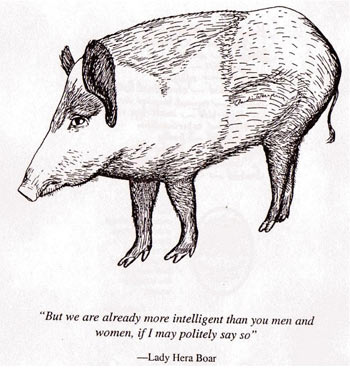 |
click on the flowers to go up to the menu
|
|
|
|
|
|
|
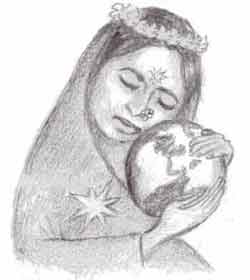 |
|
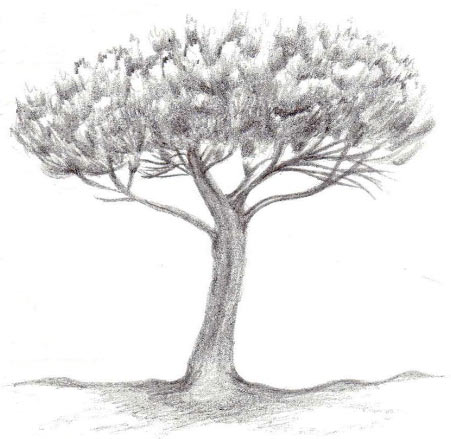 |
|
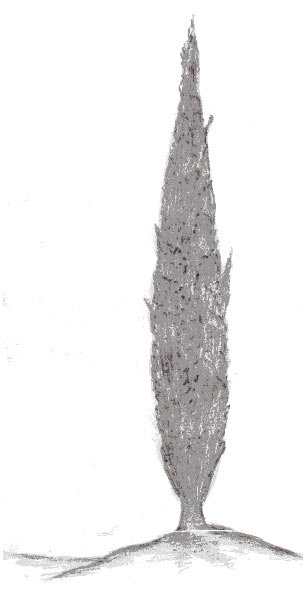 |
|
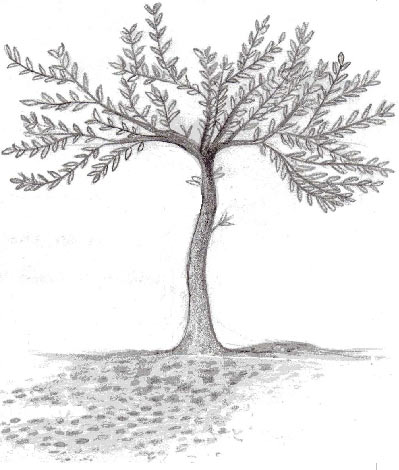 |
click on the flowers to go up to the menu



